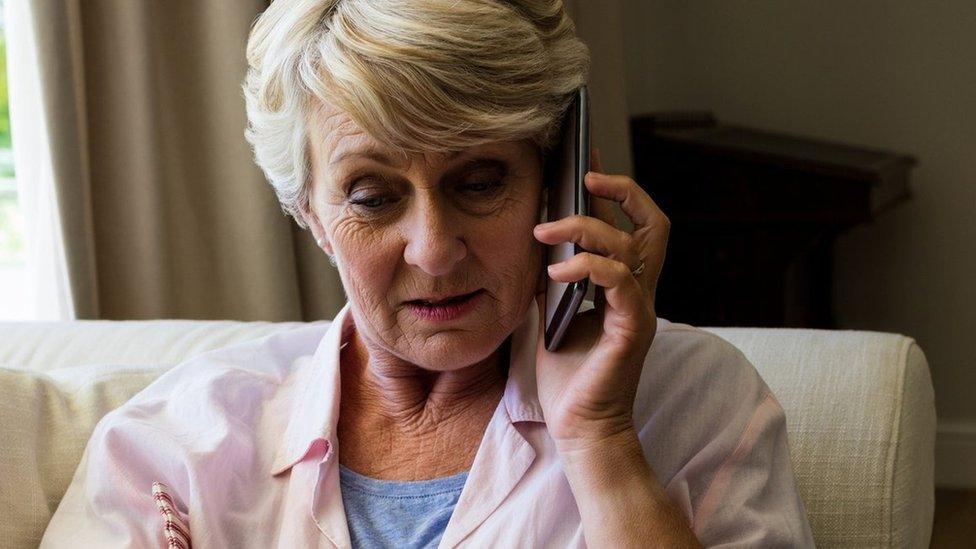Nuisance call bosses face £500,000 fines
- Published
- comments

Directors of firms that cold-call consumers can now be fined up to £500,000 under new rules that have come into force.
A ban on unsolicited phone calls came into effect in September, external this year.
But some directors whose firms were shut down were able to evade fines by declaring bankruptcy - and then starting up a new company.
The Information Commissioner's Office said the new rules would make it easier to punish those responsible.
"We welcome this amendment to the law which will increase the tools we have to protect the public," said Andy Curry, who heads up the nuisance calls team at the information watchdog.
"It will mean we can recover the fine more easily and also make it much harder for unscrupulous operators to set up in business again."
Last year, more than 3.9 billion nuisance calls and texts were made to UK households, according to the telecoms regulator, Ofcom.
'Act swiftly'
The nuisance phone calls are typically about payment protection insurance (PPI) mis-selling or accident claims. However, in the past six months the most frequent calls have come from firms claiming to be BT, HMRC or TalkTalk, according to consumer group Which?.
The number of complaints about such calls fell in October, following the ban.
Nevertheless in that month alone there were still more than 15,000 complaints about nuisance calls, broken down as follows:
7,547 complaints about automated calls
6,980 about live calls
1,245 about text messages
Which? urged the Information Commissioner's Office (ICO) to issue the maximum fine of £500,000 wherever possible, to act as a further deterrent.
"The introduction of fines for bosses of these companies is a significant step, and the regulator must now act swiftly to properly police and fine those who flout the law - demonstrating that there is no place in our society for these practices," said Alex Neill, Which? managing director of home products and services.
The current ban affects calls from claims management companies. A ban on cold-calling for pension sales is due to come into effect in January.

How to deal with cold callers
Do:
Ask cold callers to remove your information from their records
Find out caller's number from a landline by dialling 1471 after the call
Check with your phone company if you can be made ex-directory
Don't:
Give away personal or financial information, even if callers claim to be from a company you know
Lose your temper. Be firm and hang up if the caller refuses to go away
Call back phone numbers left on your voicemail, or reply to text messages you don't recognise
Source: BBC Skillswise
- Published8 September 2018
